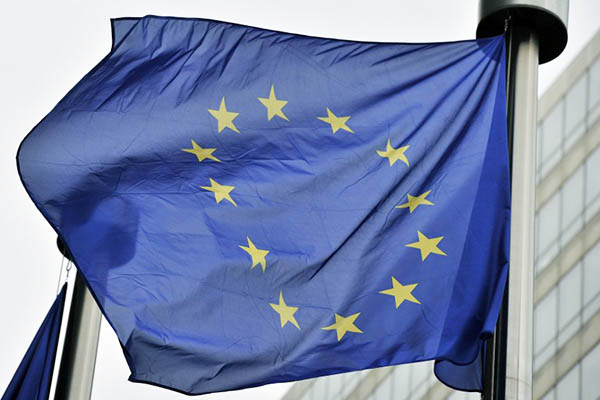
File photo. Georges Gobet—AFP
Member of delegation that visited Islamabad explicitly links preferred trade status to respect for human rights
Luis Garicano, one of a four-member European Parliament delegation that visited Islamabad last week, on Sunday explicitly linked Pakistan’s respect for human rights, particularly on blasphemy laws, minority and women’s rights and press freedom, to a renewal of the GSP+ trade status set to expire in 2023.
“Our message was clear: Pakistan should not take for granted its privileged trade status,” he said in a series of posts on Twitter. “E.U. has done its part, Pakistan must fulfill its own part,” he added.
GSP+ refers to a special trade arrangement that the European Union offers to developing nations whereby tariffs are zeroed on several export products in return for a commitment to implement 27 international conventions on human rights, environmental protection and governance. The E.U. has long voiced concern over Pakistan’s failure to implement its part of the deal, stressing that Islamabad’s fulfillment of human rights is lacking.
In April, the European Parliament moved a resolution against Pakistan seeking an immediate review of its eligibility for GSP+ status over the discrimination of religious minorities and other vulnerable groups, as well as excessive curbs on freedom of speech. Pakistan’s GSP+ status expires in December 2023, but the E.U. is set to review its decision on renewing or ending it in February 2022. Approximately 31 percent of Pakistan’s exports are to the E.U., thanks largely to the preferential terms under GSP+.
Garicano emphasized that the European Parliament was “very concerned” about the deteriorating human rights situation in Pakistan. “The European delegation [that visited Islamabad] wanted to ensure that the human rights part of the deal advances. Only with respect of human rights can Pakistan prosper, extremism be defeated and the country attain the level of progress it deserves,” he said.
Highlighting three major concerns—minority rights, women’s rights, and press freedom—the European lawmaker said there had been “no progress” on these. “In fact, things are going backwards in terms of journalistic freedom,” he warned.
Summarizing Pakistan’s failures in implementing international conventions on human rights, he said that minority rights had been a “big priority” of Pakistan’s founder, Mohammad Ali Jinnah. Noting that the Constitution also guaranteed provisions for minorities to freely profess and practice their religions, he said this was not reflect in reality “due to blasphemy laws and civil rights suppression.”
Referring specifically to the blasphemy laws, he alleged they were “abused” to keep minorities on the defensive, adding that false accusations could result in prison terms lasting years. “The civil rights of minorities are constantly under attack,” he said. “The Ahmedi minority, for instance, is de facto excluded from voting and representation, as they must renounce their faith to vote,” he added.
On women’s rights, Garicano said concerns remained about forced marriages and forced conversions of young girls. “Since Islam punishes apostasy with death, once a girl is forced to convert, it is impossible for her to divorce and come back to her home,” he added.
Lastly, the E.U. lawmaker said a “huge concern” was press freedom. “Journalists disappear frequently, there are frequent campaigns of cyber-harassment online,” he added.
European Union Ambassador to Pakistan Androulla Kaminara, in a statement issued last month, had noted that Pakistan’s exports to Europe had increased by 60 percent since it was granted GSP+ status in 2014. However, she said, if Islamabad wished to maintain this beyond 2023, it would “have to redouble its efforts to turn the international conventions it signed into reality on the ground.”
